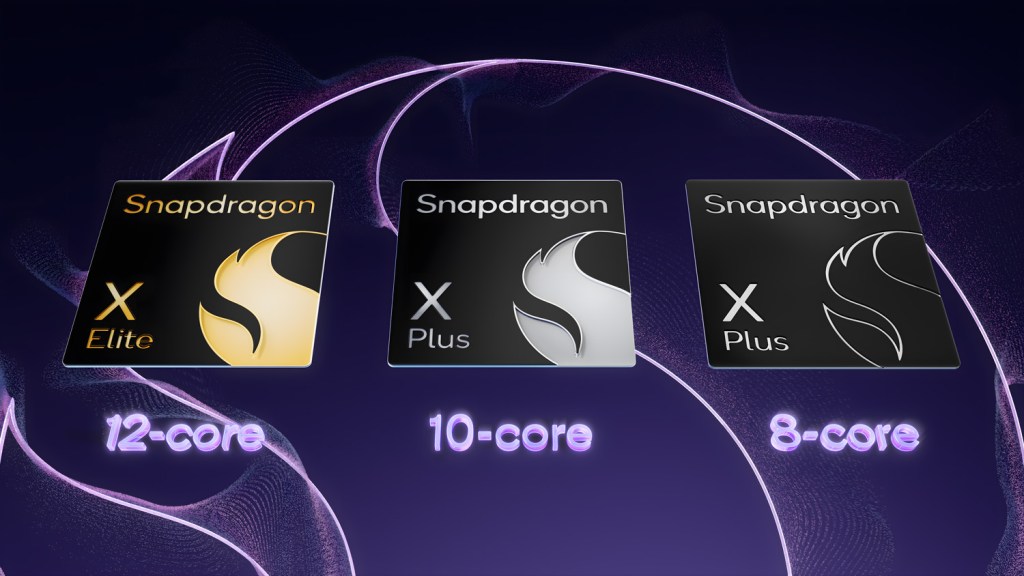Over the last few months key PC makers have been mostly talking about one thing – AI-capable Copilot+ laptops. So far these have been powered by Snapdragon chips offering long battery life and great performance.
Now though, PC makers have some other options with the traditional silicon vendors getting in on the act. At IFA 2024, laptops featuring AMD Ryzen AI 300 series and Intel Core Ultra 200V series are also emerging and we’ll be covering all the latest announcements as they happen.
Qualcomm Snapdragon is also at IFA 2024, looking to double down on its Copilot+ PC offering. Especially for mid-range laptops, it’s now offering more chips for PC makers to choose from.
It already offered the Snapdragon X Plus to sit under the 12 core X Elite range-toppers, but now it has revealed three new X Plus chips – one with 10 cores and two with 8 cores which will appear in laptops in the $700-$900 range. Asus, Dell, Honor, HP, Lenovo and Samsung are all launching devices with the new X Plus chips on board and there are no more than 22 Snapdragon-powered PCs available.

All the chips are based around Qualcomm’s super-fast Oryon processor core. As with the previous Snapdragon X Elite and X Plus announcements, the same Hexagon neural processor is used, capable of 45 trillion operations per second (TOPS).
There are now four different X Plus versions, two with 10 cores and two with 8 cores. I think a different brand (maybe simply Snapdragon X) should have been chosen for the 8 core models as it will be hard to distinguish between the Plus models in devices available for purchase.
Copilot+ software features in Microsoft Windows like live caption and Studio Effects are due to roll out to the Intel and AMD devices from November (they’re already on the Snapdragon devices). Microsoft previously shared that the key Copilot+ software feature – Recall – will start rolling out to Windows Insiders from October after early issues.

